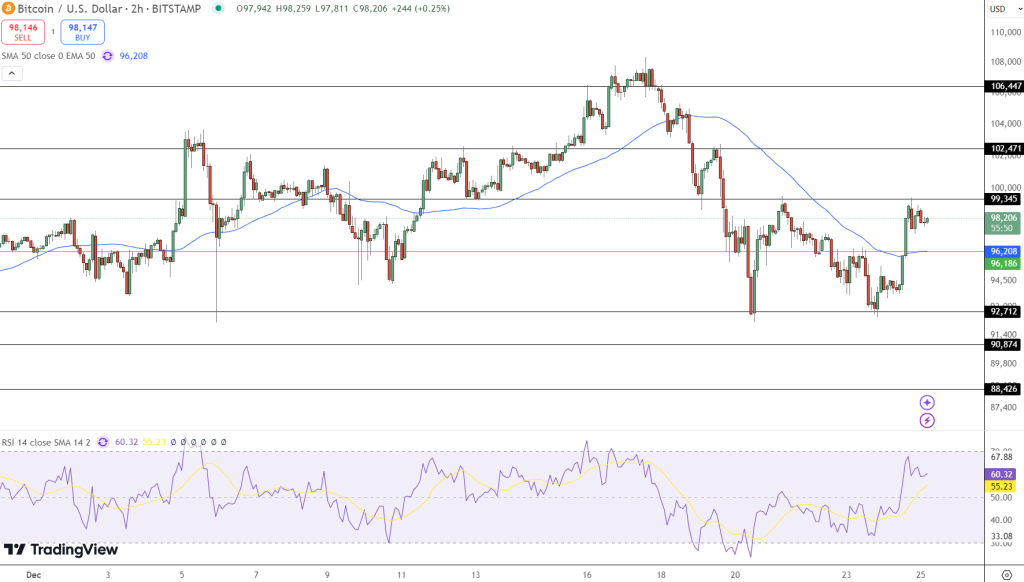Last updated:
 Why Trust Cryptonews
Why Trust Cryptonews

Bitcoin fell sharply over the weekend, sliding 6% to $77,730 as a wave of market volatility swept through global markets following newly announced tariffs by US President Donald Trump.
The broader sell-off last week pushed US equities to their steepest decline since 2020. The ripple effect quickly spread to digital assets.
The leading cryptocurrency, which had mostly hovered above $80,000 throughout 2025, broke below the key $78,000 level for the first time in weeks.
Bitcoin Tracks Tech Stocks as Global Sell-Off Deepens
The drop puts Bitcoin roughly 28% off its January all-time high. Other major tokens also saw steep losses. Ethereum tumbled 13% to $1,568, XRP dropped nearly 12% and Solana shed over 12% to $105.43.
Bitcoin’s behavior in recent months has increasingly mirrored that of major tech stocks, often moving in sync with indices like the S&P 500 and Nasdaq. In March, analysts recorded a weekly correlation of 0.88 between Bitcoin and the equities market. That alignment appears to have held, as last week’s sell-off across Wall Street, driven by fears of a global trade war, pulled Bitcoin down with it.
Hong Kong Stocks Suffer Worst Drop Since 2008 Financial Crisis
Market stress wasn’t limited to the US. On Monday, Hong Kong’s Hang Seng index slumped more than 10% in morning trade, its largest single-day drop since the 2008 global financial crisis.
Chinese stocks also fell sharply, as the country faced over 50% in US tariffs. Beijing responded on Friday by announcing new levies on American imports, escalating concerns that a full-blown trade war could tip the global economy into a deep recession.
Goldman Sachs has raised the odds of a US recession to 45% in the next 12 months, echoing similar warnings from other major banks.
Crypto Liquidations Spike, Yet Long-Term Outlook Stays Positive
Still, some in the crypto space urged calm. “These price swings may rattle speculators, but ultimately, this is just noise,” said Gadi Chait, investment manager at Xapo Bank. “Bitcoin has always been and always will be a long-term play; its value lies in its inherent sovereignty, decentralisation, and finite nature, not short-term volatility. We’ve been here before, and we’ll likely be here again, but Bitcoin’s long-term trajectory remains undeniable.”
Despite the reassurance, signs of stress were clear in derivatives markets. Coinglass data
showed $976m in crypto positions were liquidated in the past 24 hours. Long positions accounted for $842.2m of that total.
More than 318,000 traders were liquidated, showing how quickly sentiment can shift in turbulent times.
Traders are now watching the $76,600 level closely. A break below it could signal a deeper correction is on the horizon. For now, however, Bitcoin remains within a broader trading range, with bulls hoping this is just another temporary shakeout in an otherwise resilient market.




